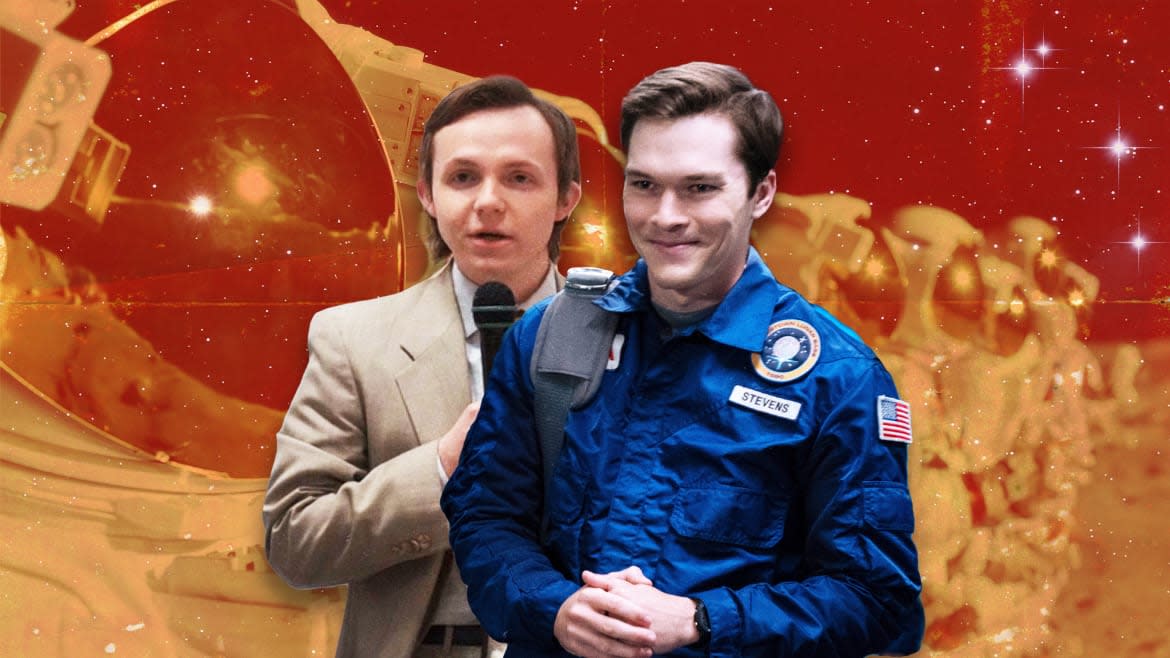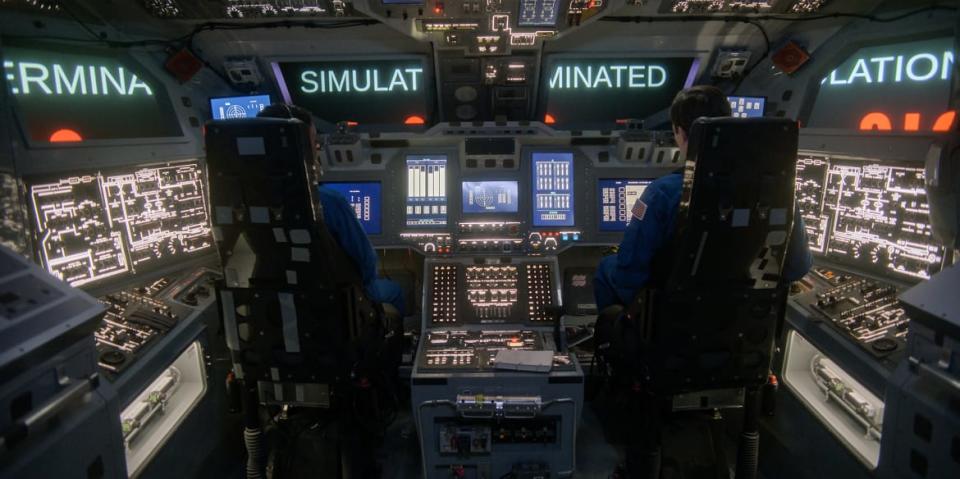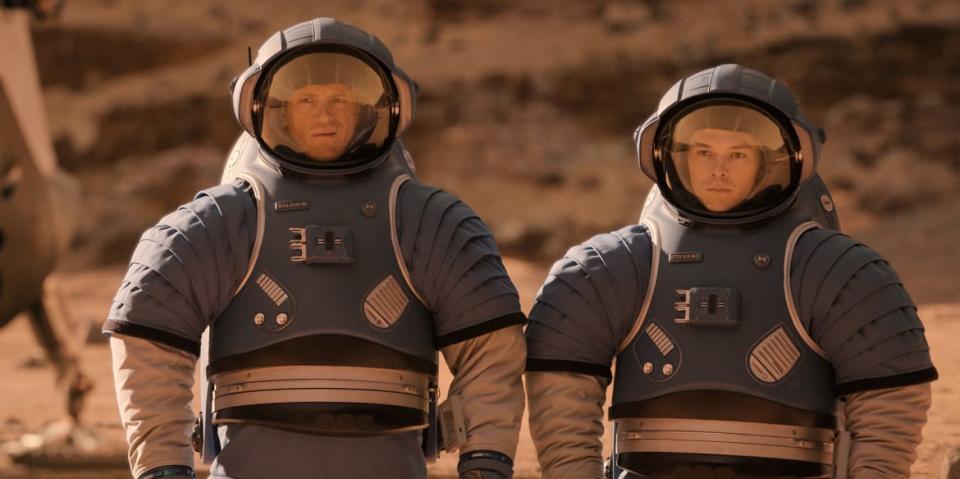These Are the New Absolute Worst Teen Characters on TV

Adolescence is a trying time for anyone, but no one has it quite as hard as the teens on prestige TV shows.
Reasons to act out are relative to what is going on at home: dad is a mobster; dad was held captive and is probably a terrorist; dad has a dangerous job that puts you in the crossfire; dad had a very public sex scandal; dad has cancer and is also a drug dealer; parents are spies; or parents have an unplanned baby later in life. (OK, Friday Night Lights’ Julie Taylor is just an asshole).
Under these circumstances, it is understandable why the likes of Meadow and A.J. Soprano on The Sopranos, Dana Brody on Homeland, Kim Bauer on 24, and the rest of this delinquent crew act out—or at the very least, constantly whine about their tribulations. And yet, they are the first to get exasperation and anger directed at them from fans of their respective shows who lose patience with their behavior, no matter the logical reasons behind their indiscretions.
While I am willing to die on the hill that Paige Jennings did nothing wrong in The Americans, there are two new candidates for the Most Annoying Teen on TV title. You will be hard-pressed to find someone willing to go to bat for them. Oh, and they aren’t exactly teenagers anymore either.
‘Homeland’ Star Morgan Saylor: TV’s Most Hated Character Talks Back
Danny (Casey W. Johnson) and Jimmy Stevens (David Chandler) haven’t had the most stable upbringing as the children of not one, but two superstar astronauts in Apple TV+’s excellent alt-history drama, For All Mankind. The ambitious series began in 1969 when the Soviets planted their flag on the moon first. A different outcome to the space race is the sliding doors jumping-off point (but without Gwyneth Paltrow) that offers a bold vision of what could have been.
(Warning: Spoilers ahead for For All Mankind.)
Each season has leaped (ahem) forward, and events in recent episodes depict a three-way battle to get a human-crewed mission to Mars in the mid-’90s. The youthful team of the first season is now sporting makeup and wigs to believably play older. Time jumps also mean that the Stevens’ offspring have grown before our eyes from attention-starved children to tricky teens and even trickier adults.
The Stevens boys are now men. One followed in his parents' footsteps, and the other fell in with a group of conspiracy theorists. Regardless of their ages, these storylines and the visceral reaction these characters conjure are in line with the fan hatred that was thrown at the likes of Meadow, Dana, and Kim. (“For All Mankind is one of the best shows on television, and then there are also the scenes featuring Danny Stevens,” one tweet reads, for example.)

Krys Marshall and Casey W. Johnson.
More often than not, young women draw ire, and the sons tend to be an afterthought. Can you even name Dana Brody’s sibling on Homeland without the aid of a search engine?. There’s obvious misogyny in that, and the way that female characters are treated across the board—such as “nagging” wife characters like Skyler White on Breaking Bad.
This isn’t to say Danny and Jimmy are alone on their adolescent boy island. (I’m looking at you, The Good Wife’s Zach Florrick). But the elder Stevens tipped into maddening status during the second season. An extremely questionable hook-up contributes to Danny’s arrested development, and the death of their parents certainly contributes to their erratic choices.
I still can’t look at duct tape in the same way after Gordo (Michael Dorman) and Tracy Stevens (Sarah Jones) pulled a Project Runway-esque trick to fashion a space suit with mixed results—they did save everyone else on the moon, if they weren’t able to make it out alive themselves. So the bitterness emanating from their children is understandable. “But really, they’re just dead,” says Jimmy during his mood-killing best man speech at his brother’s wedding in the Season 3 premiere. It’s maybe not the time for this mini-rant, but he’s not wrong.
Statues have been erected, Meg Ryan and Dennis Quaid played the couple in Love in the Skies (yes, I want to watch this), and Danny even avoids an arrest based on his name alone. Their mom and dad died heroes, but their noble sacrifice left their already floundering kids without parents. It doesn’t matter that neither was particularly present even when they were on Earth, or that their marriage had broken up long before they found themselves on the moon together. Even a mostly absent parent who loves their kids is better than a dead one.
Acting out is a teenage rite of passage that adds to the irritation levels, and Danny is far more reactionary in his late twenties than he ever was while on his first summer break from Annapolis. Now he is popping Oxycodone and Dextroamphetamine on Mars like its candy. To understand why he is acting like such a shit in the present, we must travel back to his summer job at the Outpost bar. Here, he smoked weed with his boss Karen (Shantel VanSanten) and crossed what should have been a forbidden romantic line.
The Reason ‘For All Mankind’ Is the Surprise Best Show on TV
This storyline is on the soapy end; a surrogate-father twist involving Karen’s ex-husband Ed (Joel Kinnaman) and Danny is downright Oedipal. But For All Mankind’s brilliance lies in its ability to juggle high-octane action, melodrama, and office bureaucracy—with much of this workplace action taking place in a tiny tin can.
It’s also a series that is shrewd in how it portrays generational trauma, which certainly affects Danny and Jimmy.
When they were alive, Tracy and Gordo turned to alcohol as a crutch, and their son followed in their destructive steps. The bravery gene is strong, but so is the substance abuse one. Again, this should lead to audience empathy; instead, Danny comes across as sniveling and petulant. Sadly, charm is not hereditary. Danny quickly loses sympathy when he dials up his stalker and other toxic behavior targeted at Karen. She doesn’t owe him shit. Even millions of miles from home, he is cranking up the creepy schoolboy infatuation by watching the video messages Karen sends her ex-husband.
Danny needs therapy, but instead, he thinks marrying a picture-perfect astronaut-wife and having a baby will fill the empty void. In fact, Danny repeats many of the mistakes his father made. I never wrote “I hate him so much” in my notes about Gordo, but I’ve absolutely done it about Danny. So what is about this character that prompts my visceral ire?
My breaking point was during the recent episode “Seven Minutes of Terror,” a title that title refers to landing on the surface of Mars. However, it’s also an appropriate reference to an excruciating heart-to-heart between Danny and Ed.

Joel Kinnaman and Casey W. Johnson.
It says something that the most stressful moment of this season (so far) is that conversation. The previous episode concluded with a spacecraft squishing an astronaut to death, and another died when a rogue piece of equipment penetrated his visor. It is only a matter of time before Ed finds out that Danny, who Ed thinks of as a son, slept with his wife. The secret is as dangerous as whatever Mars can throw their way. OK, maybe not as dangerous, but I still need Danny to keep his fingers out of the meds cabinet—which, for some reason, isn’t monitored closely. Does this lack of accountability happen when you sign up for the tech billionaire mission?
“I don’t need you to fucking look out for me” is Danny’s aggressive response after Ed asks questions about the injury he sustained to his hand. His outbursts, bullying tactics, and inability to take criticism are an uglier side of this character. For his part, Ed cops to the fact he does treat him like a child: “You’re a grown man, a qualified astronaut.” If only Danny acted like one.
While his older brother is currently more than 30 million miles away, Jimmy is searching for something to cling to on Earth. His reclusive nature is hardly new. It can’t be easy being the awkward younger sibling of a hotshot like Danny. At a protest, the younger Stevens meets a welcoming group who are suspicious of the information NASA is sharing—particularly about his parents’ deaths. It is an act of rebellion after teendom but rooted in a deep resentment toward the institute his family represents.
Ronald D. Moore Made ‘For All Mankind’ and ‘Battlestar Galactica’ to Give Us Hope for the Future
In For All Mankind’s version of the timeline, the Stanley Kubrick moon landing conspiracy doesn’t exist. The conspiracy theory in this universe is that Gordo and Tracy’s heroics didn’t happen as reported. (My blood pressure and tears can assure it did.)
Time jumps are part of the For All Mankind framework, partly because of how long it would take to design and build new spacecraft—not to mention the training. A decade has passed between seasons, and yet, because others still treat them like young men, it is easy to forget they are both in their twenties. (Danny might even be 30 by now.) Given this, it is hardly surprising that Danny’s story still elicits such a strong response. He is still caught in that late-teen box.
Whether your parents are spies, politicians, in the mob, or astronauts, it is a rite of passage to cause grumbles from the audience. It might not be fair, but that’s adolescence for you—on Earth or Mars.
Get the Daily Beast's biggest scoops and scandals delivered right to your inbox. Sign up now.
Stay informed and gain unlimited access to the Daily Beast's unmatched reporting. Subscribe now.

